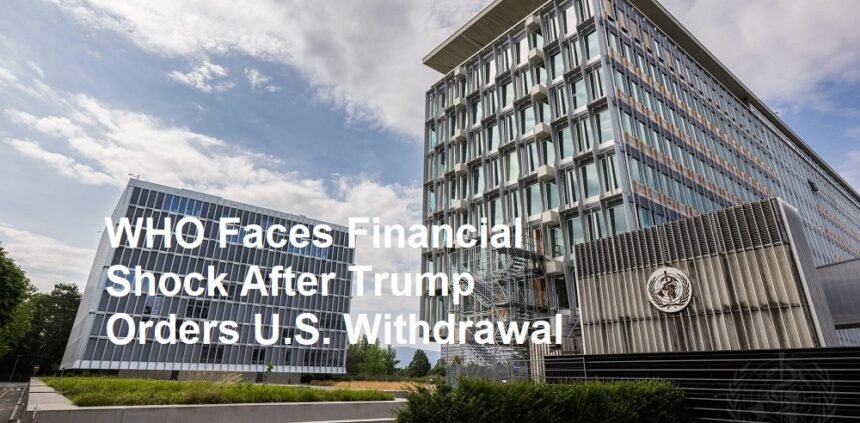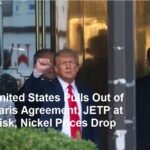The World Health Organization (WHO) is grappling with a significant financial setback following a decision by then-President Donald Trump to halt U.S. funding and withdraw the country’s membership from the international health body. This move has left the WHO facing substantial financial challenges, as the United States had been one of its largest contributors. The decision, announced in July 2020, sent shockwaves through the global health community, raising concerns about the organization’s ability to continue its vital work in combatting global health crises, including the ongoing COVID-19 pandemic.
Under President Trump’s administration, the United States had been contributing approximately $400 million annually to the WHO, representing roughly 15% of the organization’s total budget. The funds from the U.S. had been instrumental in supporting various WHO programs, including disease prevention, emergency responses, and research efforts. The U.S. funding had also been crucial in providing resources to lower-income countries struggling with health challenges, such as infectious diseases and inadequate healthcare infrastructure.
In response to President Trump’s decision, WHO officials expressed their concerns about the financial implications, noting that the organization relied heavily on contributions from member states to fund its global health initiatives. The withdrawal of U.S. support led to fears that other member nations might follow suit, potentially undermining the WHO’s effectiveness in addressing global health emergencies.
The decision to halt U.S. funding was part of a broader criticism by Trump’s administration of the WHO’s handling of the COVID-19 pandemic. The U.S. president accused the organization of being too lenient toward China and failing to provide timely and accurate information about the virus, which contributed to the rapid spread of the disease worldwide. Trump argued that the WHO’s response to the pandemic was inadequate, and he claimed that China had exerted undue influence over the organization’s actions.
The withdrawal of the United States from the WHO also sparked a global debate about the future of multilateral organizations and their ability to effectively address global challenges. Critics of the decision argued that abandoning the WHO would weaken the international response to health crises and undermine global cooperation in the fight against pandemics. Public health experts warned that the lack of U.S. funding could diminish the WHO’s capacity to carry out critical research and provide essential resources to countries in need.
Despite the U.S. withdrawal, WHO continued to operate with support from other member states, including countries in Europe, Asia, and Africa. However, the financial gap left by the loss of U.S. contributions has been difficult to fill. The organization has had to rely more on voluntary contributions from countries, as well as partnerships with private foundations and non-governmental organizations.
In 2021, President Joe Biden, upon taking office, reversed the decision to withdraw from the WHO and reinstated U.S. financial support. This move was widely welcomed by global health leaders, who saw it as a step toward restoring international cooperation and strengthening the WHO’s capacity to address global health threats. The Biden administration’s decision to rejoin the organization was seen as a recognition of the importance of multilateralism in addressing health crises, particularly in the wake of the COVID-19 pandemic.
With the return of U.S. funding, the WHO has been able to resume its programs and continue its efforts in combating infectious diseases, promoting global health equity, and responding to new health challenges. However, the financial repercussions of the Trump administration’s decision are still being felt, and the WHO remains vigilant in its efforts to secure sustainable funding for its work.
In conclusion, the financial shock caused by the United States’ withdrawal from the World Health Organization under President Trump’s administration highlighted the critical role that U.S. contributions play in supporting global health initiatives. While the Biden administration’s decision to rejoin the WHO has helped stabilize the organization’s finances, the episode serves as a reminder of the vulnerabilities faced by international organizations reliant on member state contributions. Moving forward, the WHO will continue to navigate the challenges of securing funding while striving to fulfill its mission of promoting global health and addressing the world’s most pressing health challenges.













